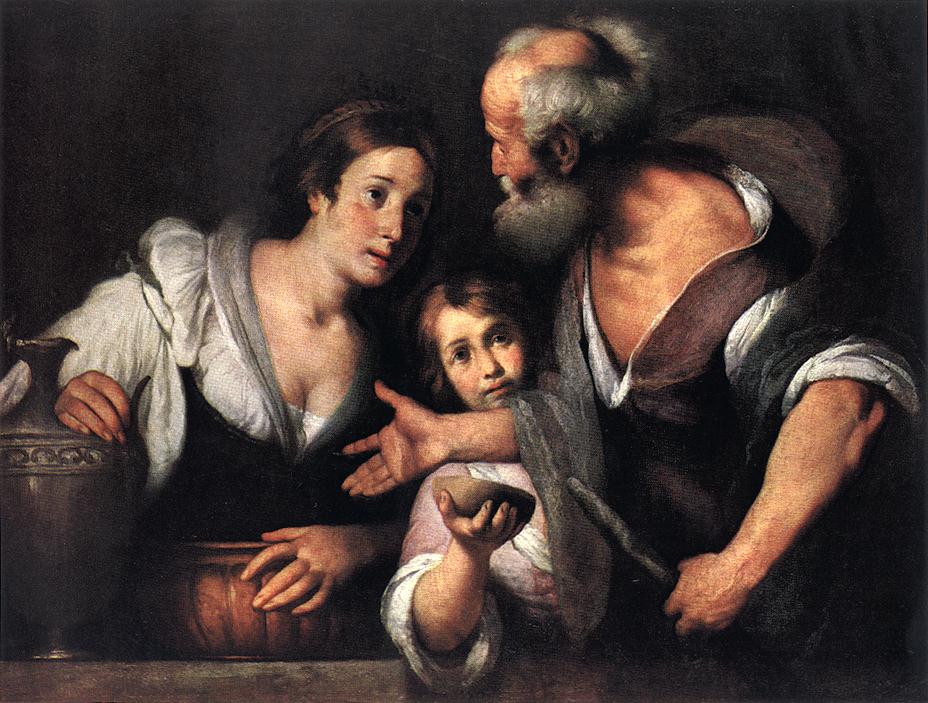1 Kings 1:10-16 / Ps. 146:7-10 / Heb. 9:24-28 / Mk. 12:38-44
We must live by the obedience of faith, a faith that shows itself in works of charity and self-giving (see Galatians 5:6). That’s the lesson of the two widows in today’s liturgy.
The widow in the First Reading isn’t even a Jew, yet she trusts in the word of Elijah and the promise of his Lord. Facing sure starvation, she gives all that she has, her last bit of food — feeding the man of God before herself and her family.
The widow in the Gospel also gives all that she has, offering her last bit of money to support the work of God’s priests in the Temple.
In their self-sacrifice, these widows embody the love that Jesus last week revealed as the heart of the Law and the Gospel. They mirror the Father’s love in giving his only Son, and Christ’s love in sacrificing himself on the cross.
Again in today’s Epistle, we hear Christ described as a new high priest and the suffering servant foretold by Isaiah. On the cross, he sacrificed once and for all to take away our sin and bring us to salvation (see Isaiah 53:12).
And again we are called to imitate his sacrifice of love in our own lives. We will be judged, not by how much we give — for the scribes and wealthy contribute far more than the widow. Rather, we will be judged by whether our gifts reflect our livelihood, our whole beings, all our heart and soul, mind, and strength.
Are we giving all that we can to the Lord — not out of a sense of forced duty, but in a spirit of generosity and love (see 2 Corinthians 9:6-7)?
Do not be afraid, the man of God tells us today. As we sing in today’s Psalm, the Lord will provide for us, as he sustains the widow.
Today, let us follow the widows’ example, doing what God asks, confident that our jars of flour will not grow empty, nor our jugs of oil run dry.

